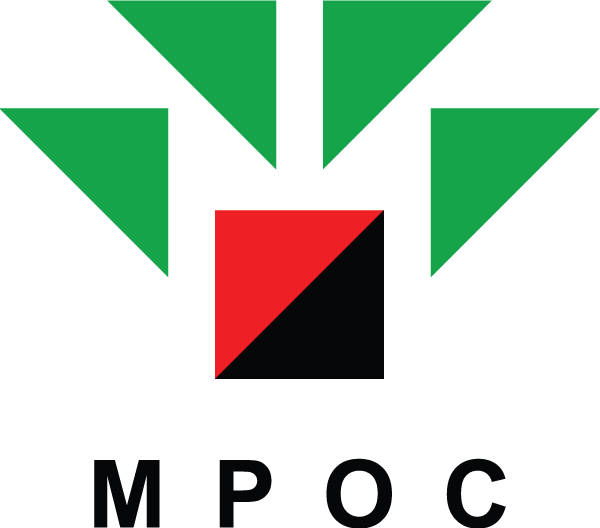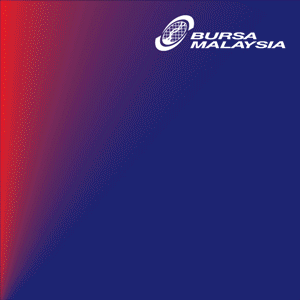Now
22 - 28 Jun 2024
POINTERS ON THE PRICE TRENDS

Archive
2020

24 Feb - 01 Mar 2025
Section 1 : CPO Price Trend

24 Feb - 01 Mar 2025
Section 2: Global Palm Oil Market Opportunities

22 - 28 Jun 2024
POINTERS ON THE PRICE TRENDS

2019

18 - 24 Feb 2025
Section 1: CPO Price Trend

25 - 24 Feb 2025
Special Focus - India

19 - 25 Aug 2024
Section 1 : CPO Price Trend

19 - 25 Aug 2024
Section 2: Special Focus

2018

29 Jan - 04 Feb 2025
Section 1: CPO Price Trend

29 Jan - 04 Feb 2025
Section 2 : Global Palm Oil Market Focus

06 - 12 Aug 2024
Section 1: CPO Price Trend

06 - 12 Aug 2024
Section 2: Global Palm Oil Market Focus

2017

20 - 26 Feb 2025
Section 1: Price Directions

20 - 26 Feb 2025
Section 2: Market Challenges and Opportunities

21 - 27 Aug 2024
Section 1: Palm Oil Price Fundamentals

21 - 27 Aug 2024
Section 2: Regional Focus : CIS Countries

2016

22 - 29 Feb 2025
2016 Market Direction - Twists and Turns of Palm Oil Prices

22 - 28 Aug 2024
Section 1 : Palm Oil Price Fundamentals

22 - 28 Aug 2024
Section 2 : Trade Issues and Market Prospects

•
Indonesia's Palm Oil Industry - Insight into Indonesia's Export Tax Policies, Palm Oil Fund and Its Impacts
2015

23 Feb - 01 Mar 2025
Opportunities, Challenges And Trend In 2015 CPO Price

17 - 23 Aug 2024
Second Half 2015 - Anticipating Market Price Direction

17 - 23 Aug 2024
Special Focus: Indian Sub-Continent

2014

17 - 24 Feb 2025
Anticipating 2014 Palm Oil Price Direction

25 - 31 Aug 2024
2nd Half 2014: Market Challenges, Predictions And Directions

2013

18 - 27 Feb 2025
Mapping The Palm Oil Price - 2013 Market Perspective

22 - 29 Jul 2024
Prospects For Second Half Of 2013 - Managing Price Fluctuations

2012

13 - 20 Feb 2025
2012 Price Direction, Issues & Challenges

•
06 - 17 Aug 2024
Palm Oil : Challenges, Opportunities And Latest Market Directions

2011

07 - 17 Feb 2025
Challenges, Opportunities And Price Direction

08 - 16 Aug 2024
Challenges, Opportunities And Latest Price Trend

2010

02 - 08 Aug 2024
2010 Year End Prospects - What Lies Ahead?

Login
Error
Reset Password

Error
Register

Error

POINTERS
LOGIN /
REGISTER




ORGANIZED BY:


Section 2 : Trade Issues and Market Prospects:
Indonesia's Palm Oil Industry - Insight into Indonesia's Export Tax Policies, Palm Oil Fund and Its Impacts

Mr. Togar Sitanggang
Professional Career:
• PT Musim Mas, Corporate Affairs Manager, May 2012 – Present, Jakarta
• PT Darmex Agro, Trading Manager, November 2011 – January 2012, Jakarta
• PT ED&F; Man Indonesia, Country Manager Tropical Oil Division, August 2009 – November 2011, Jakarta
• PT Bunge Agribusiness Indonesia, Research Analyst, October 2004 – July 2009, Jakarta
• Suria Kencana, Broker, March 2004 – August 2004, Jakarta
• Bakrie Group, VP Commodity Trading, January 2001 – February 2004, Jakarta
• PT Cargill Indonesia, Trader, February 1997 – December 2000, Medan
• PT SMART Corp Medan, Various Positions, March 1993 – January 1997, Medan
Organizations:
• Asosiasi Produsen Oleochemical Indonesia – APOLIN, Indonesia Oleochemicals Manufacturer Association: Chairman 2013 – 2016
• Asosiasi Produsen Biofuels Indonesia – APROBI, Indonesia Biofuels Producers Association: Secretary General: 2014 – 2017
• Dewan Minyak Sawit Indonesia – DMSI, Indonesia Palm Oil Board: Marketing and Promotion 2012 – 2015
• Gabungan Pengusaha Kelapa Sawit Indonesia – GAPKI, Indonesia Palm Oil Association: Secretary General 2015 – 2018
• European Palm Oil Alliance – EPOA: Indonesia Representative in the Steering Committee 2016 – 2017
Education:
• Magister Management Agribisnis, North Sumatera University, Medan, 2000
• Bachelor of Science in Computer Science, University of Southern California, Los Angeles, 1991
VIEW PROFILE
From four seeds brought to Indonesia in 1848, Indonesia is now the leading producer of Palm Oil in the world with major development of oil palm plantation started in 1980s. Since then palm oil production increases year by year and stand at approximately 32 million mt this year, the largest producer of palm oil in the world. The “spirit” of export tax has started in 1994. The purpose of export tax is to make sure local demand secured and prices of cooking oil does not go too high. This reached peak in Jan-April 1998 when government ban export palm oil due to scarcity in local cooking oil. However, as the production increases the need to secure local demand was no longer the main objective of the export tax but more as an instrument to control local prices. And in 2011 the export tax main objective shifted to support the downstream industries where export tax for refined or products are “cheaper” compare to Crude Palm Oil. The change drove the downstream industries development in many ways including increase of refined capacity and development of further downstream such as Oleochemicals and Biodiesels.
Portion of Indonesia export also shifted from Crude base to Product base and currently stand at 25% Crude and 75% products. Latest development of export tax was the introduction of Palm Oil Levy in July 2015 and the change of export tax from ad valorem base to specific base. Latest Indonesia export tax tariffs are in specific values, not by calculation. The Levy collection is to support development of palm oil industries in Indonesia including replanting program, research, biodiesel, etc. Biodiesel is to support the Government Program on Mandatory used of Biofuels and in the way to create new demand for palm oil in Indonesia and the world. The levy program so far has shown good impact to the market where at least it created new demand and hence hold the price to further declined. There are also concerns about the sustainability of the program since price different between Crude Oil and Palm Oil still very high and the fund would not be sufficient to support the programs. To answer this, multi stakeholders are now in discussion on finding ways to make sure the fund is enough until end of 2016 and further to 2017 and the future. This paper will explain in detail the impacts of Indonesian palm oil export tax and fund on the industry.
Portion of Indonesia export also shifted from Crude base to Product base and currently stand at 25% Crude and 75% products. Latest development of export tax was the introduction of Palm Oil Levy in July 2015 and the change of export tax from ad valorem base to specific base. Latest Indonesia export tax tariffs are in specific values, not by calculation. The Levy collection is to support development of palm oil industries in Indonesia including replanting program, research, biodiesel, etc. Biodiesel is to support the Government Program on Mandatory used of Biofuels and in the way to create new demand for palm oil in Indonesia and the world. The levy program so far has shown good impact to the market where at least it created new demand and hence hold the price to further declined. There are also concerns about the sustainability of the program since price different between Crude Oil and Palm Oil still very high and the fund would not be sufficient to support the programs. To answer this, multi stakeholders are now in discussion on finding ways to make sure the fund is enough until end of 2016 and further to 2017 and the future. This paper will explain in detail the impacts of Indonesian palm oil export tax and fund on the industry.
REGISTER OR LOGIN TO VIEW FULL REPORT
REGISTER OR LOGIN TO VIEW PRESENTATION SLIDES
Questions & Answers
Please login to post comments.
Follow us on Facebook
16,549 likes
16,549 likes

